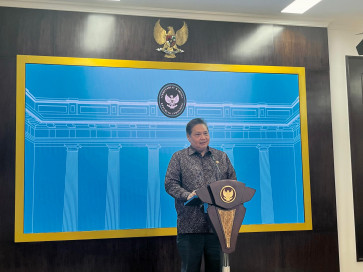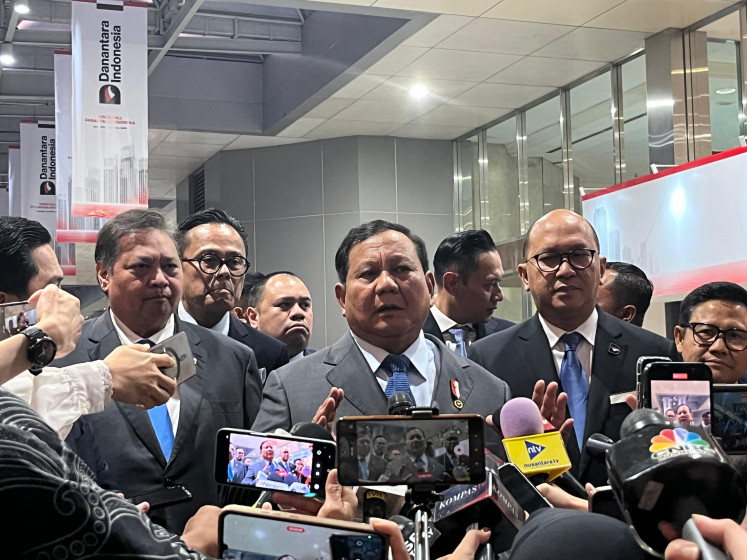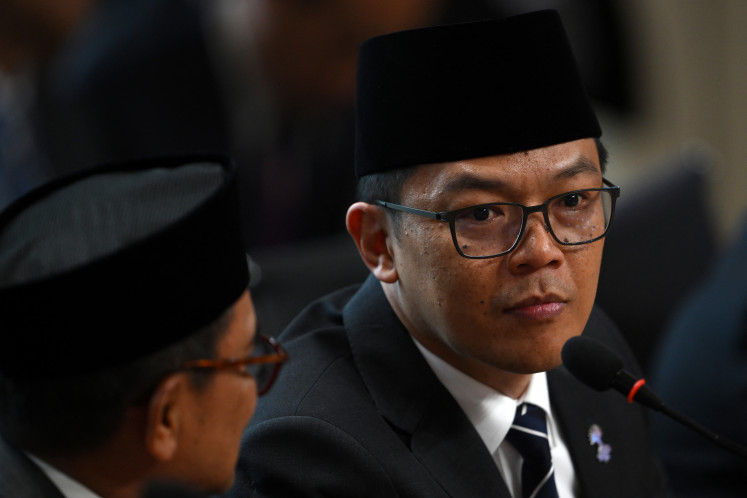Learning from the oil spill
An oil spill caused by a leak in one of three oil wells owned by state oil and energy company Pertamina at the Offshore North West Java (ONWJ) Block near Karawang, West Java, has started to shrink
Change text size
Gift Premium Articles
to Anyone

A
n oil spill caused by a leak in one of three oil wells owned by state oil and energy company Pertamina at the Offshore North West Java (ONWJ) Block near Karawang, West Java, has started to shrink.
The volume of the oil spill, , which had reached as far as the Thousand Islands regency in Jakarta last week, significantly dropped due to added efforts to halt the leak, Pertamina said on Thursday
The spill had already polluted seven beaches in West Java and at least 10 nearby villages. Although the incident has not yet affected tourism, it has already hurt fisherfolk, pond farmers, sea life and the health of Karawang residents.
Pertamina has agreed to compensate salt farmers and fishermen affected by the oil spill but said it would take some time to properly deal with its environmental impact, especially on marine life.
The broken well is one of three wells underneath Pertamina’s offshore platform in the ONWJ Block, 2 kilometers north of Karawang. The well normally produces 3,000 barrels of oil per day.
Pertamina has deployed 29 ships and stretched out more than 6 km of oil booms, a temporary floating barrier to reduce the pollution of shorelines. Pertamina will need at least until the end of September to fix the well, which broke on July 12.
An official at the Energy and Mineral Resources Ministry commended Pertamina on its response to the oil spill, saying the company had implemented a contingency plan according to standard operating procedures (SOPs).
However, oil and gas exploration experts believe the spread of the oil spill could have been contained to the waters around the offshore well if Pertamina had been faster with carrying out its contingency plan. Pertamina launched a large-scale operation only after the oil spill began edging closer to the beach.
They added that there should have been signs pointing to potential trouble under the oil well.
There may be nothing wrong with the government’s policy on overcoming oil spills, considering that oil companies in the country — especially those that operate offshore wells — have their own SOPs based on international best practices.
The final assessment will reveal the truth about whether the contingency plan on the ONJW oil spill followed correct procedures. But the question remains whether the government did its supervision job properly.
As an archipelagic country with an ocean area larger than its land territory, Indonesia is more vulnerable to oil spills than other countries in the region.
The number of offshore wells will increase as oil and gas companies have shifted their exploration to deep waters amid a lack of findings on land. This will lead to the increasing traffic of oil tankers, which will heighten risks of oil spills.
All stakeholders in the oil and gas industry should, therefore, take the ONWJ oil spill as a valuable lesson to improve the handling of similar incidents for the safety of the entire country.









